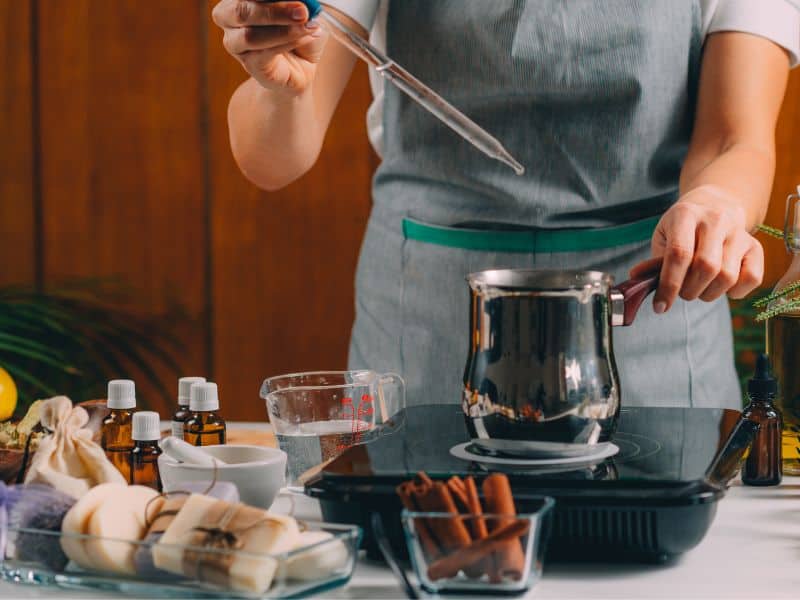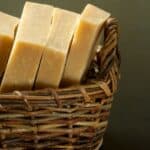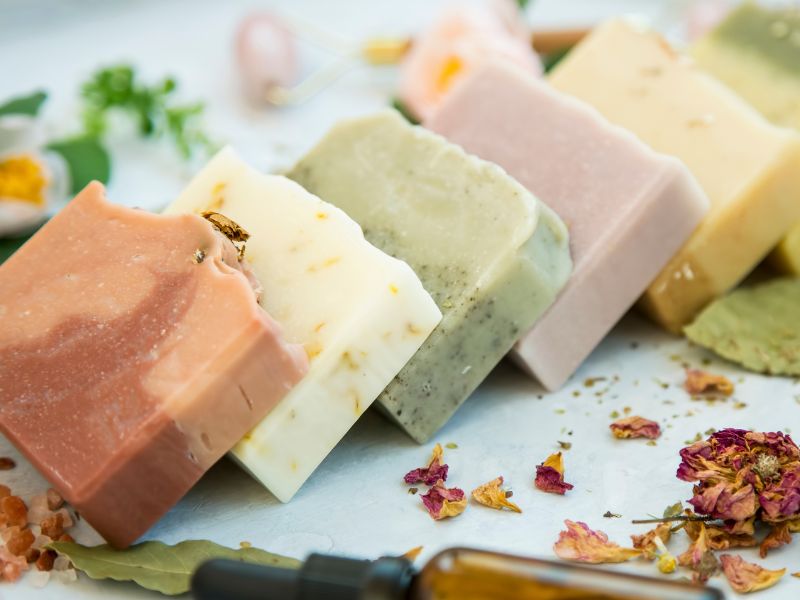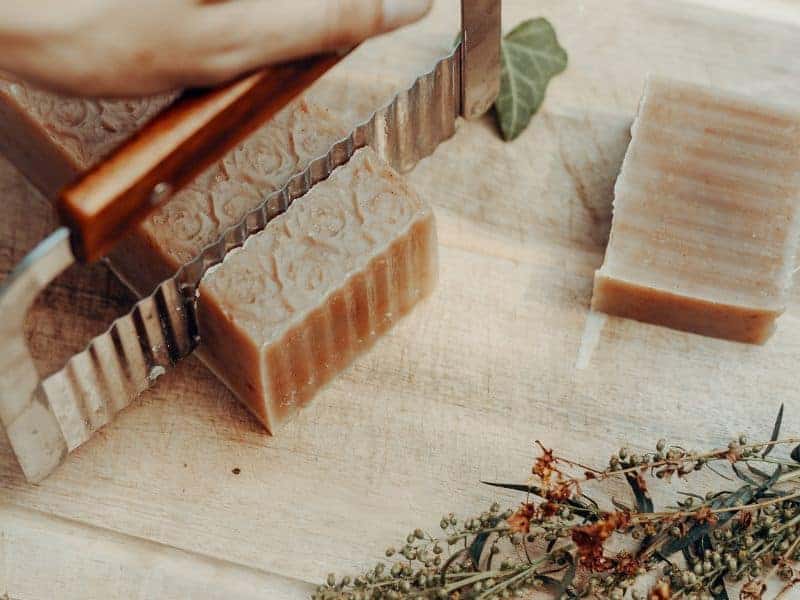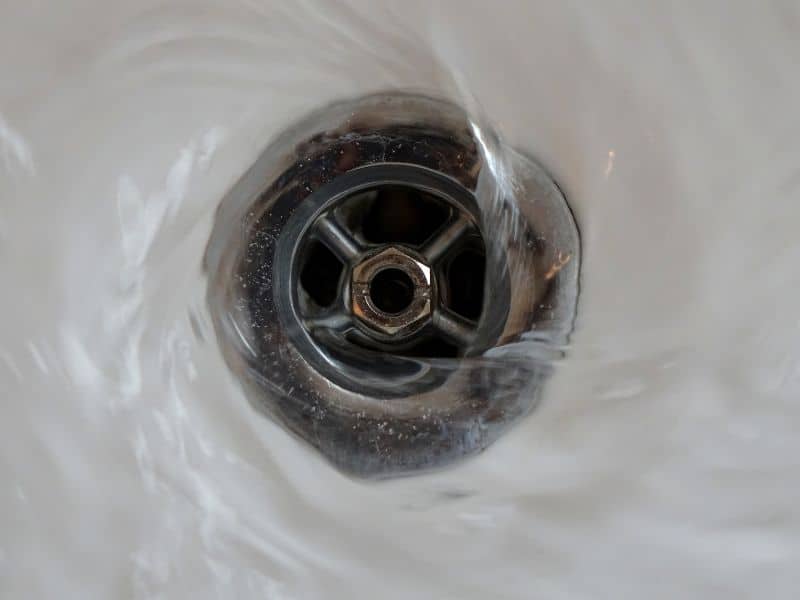Making your own soap at home can be fun and rewarding, but it does come with some drawbacks. We are going to explore the disadvantages of homemade soap in detail to help you decide whether making your own is right for you.
The Disadvantages of Homemade Soap
Despite the benefits of homemade soap, there are several disadvantages that need to be considered before attempting to make it.
Safety Concerns
One of the most significant disadvantages of homemade soap is safety concerns.
Lye safety
Soap-making requires the use of lye, a highly caustic and dangerous chemical that can cause severe burns if mishandled. Proper safety precautions, including wearing protective clothing and goggles, should be taken when handling lye to avoid injury.
Equipment safety
In addition to lye safety, there are also equipment safety concerns. The use of large pots, thermometers, and immersion blenders can pose a safety risk if not used correctly.
Mixing safety
Mixing safety is also crucial, as lye and water must be mixed in specific ratios to avoid overheating or splashing.
Inconsistent Results
Another disadvantage of homemade soap is inconsistent results.
Difficulties with measurements
Making soap from scratch requires precise measurements of ingredients to ensure the soap’s quality and safety. However, measuring ingredients can be challenging, and mistakes can result in soap that is too harsh or too soft.
Limited availability of ingredients
Additionally, some ingredients used in homemade soap may be difficult to find or expensive, resulting in limited availability.
Variation in soap texture and scent
Even when using the same recipe and ingredients, variations in soap texture and scent can occur, making it difficult to replicate results.
Longer Cure Time
A further disadvantage of homemade soap is the longer cure time required. After making soap, it must be cured for several weeks to allow excess water to evaporate and for the soap to harden properly.
Explanation of curing
After making soap, it must be cured for several weeks to allow excess water to evaporate and for the soap to harden properly.
Comparison of cure time to store-bought soap
This curing process can take longer than store-bought soap, which is ready to use immediately. Proper curing is essential for soap quality, and a lack of patience can result in poor quality soap.
Importance of proper curing time
Proper curing is essential for soap quality, and a lack of patience can result in poor quality soap.
Cost
Making homemade soap can be more costly than purchasing store-bought soap.
Cost comparison between homemade and store-bought soap
While homemade soap can save money in the long run, there are initial expenses for ingredients, equipment, and molds.
Expense of ingredients
High-quality ingredients can be expensive, and the need for specialized equipment can add to the overall cost.
Additional equipment costs
If you are going to make soap you will need soap molds, soap cutters, a dedicated stick blender for soap making as well as mixing containers and stirring utensils.
Time-Consuming
Making your own soap from scratch can be a significant time commitment. Before embarking on a soap-making project, it is essential to understand the process, the time required, and the factors that can affect the time it takes to make soap.
Process of making soap from scratch
The process of making soap from scratch involves several steps, including measuring and mixing ingredients, adding fragrances and colors, and pouring the soap into molds. Each step requires time and attention to detail, and mistakes can be costly in terms of time and money.
The process can take several hours, depending on the recipe and the size of the batch, and it often requires multiple days to complete due to the curing process.
Time commitment required
The time commitment required to make soap can also be a significant drawback. Making soap from scratch is not a quick project, and it requires patience and dedication to see the process through to completion.
Factors that can affect the time it takes to make soap
The curing process can take several weeks, during which time the soap must be left undisturbed to allow excess water to evaporate and for the soap to harden properly.
Several factors can affect the time it takes to make soap. One significant factor is the recipe used. Some soap recipes require more time and effort than others, such as those that involve more complex processes or require additional steps like coloring or adding fragrance.
The size of the batch can also affect the time required. Smaller batches may take less time to mix and pour, but they may still require the same curing time as larger batches.
Other factors that can affect the time it takes to make soap include the type of oils and ingredients used, the temperature and humidity of the workspace, and the experience level of the soap maker.
Using more complex or expensive ingredients can add time and complexity to the process, while working in a humid environment can slow down the curing process.
Avoiding The Disadvantages of Homemade Soap
Homemade soap can be fun and rewarding, but it also comes with some disadvantages that can affect the quality of the soap.
Here are some tips to help you avoid these issues:
Insufficient curing time
One of the most common disadvantages of homemade soap is insufficient curing time. Soap needs time to dry and harden before it can be used.
If you don’t give your soap enough time to cure, it can be soft and mushy, and won’t lather well. To avoid this, make sure to cure your soap for at least 4-6 weeks before using it.
Incorrect measurements
Another common issue with homemade soap is incorrect measurements. Using too much or too little of certain ingredients can affect the texture, scent, and overall quality of the soap.
Be sure to carefully measure all ingredients according to the recipe you’re using.
Poor quality ingredients
Using poor quality ingredients can also affect the quality of your homemade soap. Make sure to use high-quality oils, lye, and other ingredients to ensure your soap is of the best possible quality.
Inadequate mixing
If you don’t mix your soap thoroughly, you may end up with lumps or air pockets in the soap, which can affect the texture and lathering properties.
Make sure to mix your soap thoroughly and consistently to avoid these issues.
Inadequate safety precautions
It’s important to take adequate safety precautions when making homemade soap. Lye is a caustic substance that can be dangerous if not handled properly.
Make sure to wear gloves, safety goggles, and other protective gear when working with lye, and keep it out of reach of children and pets.
Tips for Making Homemade Soap
Here are some tips for making homemade soap:
- Follow a recipe: It is important to follow a recipe when making homemade soap to ensure that the correct measurements and ingredients are used.
- Use high-quality ingredients: Using high-quality oils, lye, and other ingredients will produce a better quality soap.
- Take safety precautions: When working with lye, it is important to take adequate safety precautions, such as wearing gloves, safety goggles, and long sleeves.
- Measure ingredients carefully: Measuring ingredients carefully will help to ensure that the soap turns out correctly.
- Use a scale: A scale is the best way to ensure that ingredients are measured accurately.
- Mix thoroughly: Mixing the soap thoroughly and consistently will help to prevent lumps and air pockets.
- Allow to cure: Allowing the soap to cure for at least 4-6 weeks will ensure that it is properly dried and hardened before use.
- Experiment with scents and textures: Homemade soap can be customized with different scents, colors, and textures, so feel free to experiment and find what works best for you.
- Keep records: Keep records of the soap-making process, including the recipe used, measurements, and curing time, to help improve future batches.
- Enjoy the process: Making homemade soap can be a fun and rewarding hobby, so take the time to enjoy the process and learn as much as possible.
Frequently Asked Questions
Yes, homemade soap can contain natural and high-quality ingredients that are better for the skin than commercially produced soaps.
Improperly made homemade soap can cause skin irritation or other health problems. It is important to follow proper soap-making techniques and use high-quality ingredients.
Homemade soap can be customized by adding different scents, colors, and textures, as well as by using different oils and other ingredients.
Some popular scents used in homemade soap include lavender, peppermint, eucalyptus, and citrus.
Some common textures of homemade soap include creamy, exfoliating, and moisturizing.
Yes, homemade soap can be sold for profit, but it is important to follow local regulations and safety guidelines when doing so.
Conclusion
In conclusion, making homemade soap can be fun and rewarding. However, it is important to keep in mind the potential disadvantages of homemade soap, such as insufficient curing time, incorrect measurements, poor quality ingredients, inadequate mixing, and lack of safety precautions.
Following proper techniques and using high-quality ingredients can help to ensure that your homemade soap is of the highest quality. Customizing your soap with different scents, colors, and textures can also make it more enjoyable. Finally, if you choose to sell your handmade soaps for profit, make sure to obey local regulations and safety guidelines.

